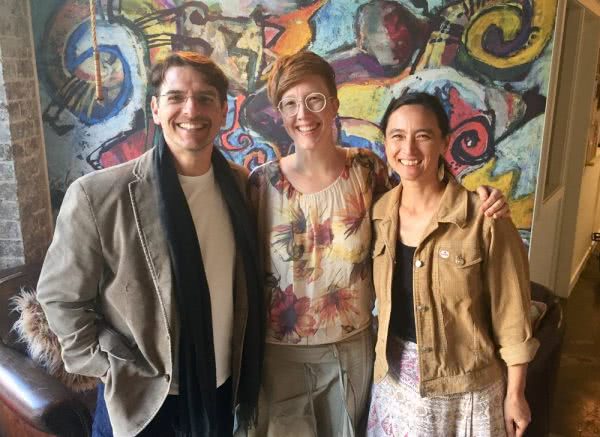Op-Ed: Guy Gross details the screen music industry’s “music library business model”

This year marks the final year that multi award-winning film composer Guy Gross will oversee both the Screen Music Awards and also the careers and interests of Australian screen composers.
A tireless advocate of the screen music industry, Guy Gross is a recipient of the APRA/AGSC International Achievement Award and President of the Australian Guild of Screen Composers. While he’s guest lectured at AFTRS and the Sydney Conservatorium, he is perhaps more widely known as the composer of BAFTA nominated score to the international hit The Adventures of Priscilla, Queen of the Desert.
Over his more than 30-year career, and during his time as AGSC President, Guy Gross has seen the screen music industry change dramatically to accommodate a new wave of digitally-minded creators. In the opinion piece below, Gross details those changes, and his wishes for the industry moving forward.
I am proud to say that beside my recent Presidency, I have been involved in the AGSC since its reformation some 30 years ago.
Obviously we’ve all seen a great deal of change over this time specifically from a technological point of view, but also from a broader craft perspective.
Whilst there still exists “good old fashioned film scoring”, a great deal of work our members are involved with falls well outside what was once considered an essential and normal part of film/tv making. That is; conventional, thematic, melodic, live, homogeneous, well budgeted and well directed story driven underscore. Today our composers are as likely to be composing pop tune soundalikes, ambient soundscapes, synthetic orchestral cues and loop and sample based underscore, often for disparate screen sequences for an enormous variety of screen based entertainment.
In some ways it’s an exciting time for the fact that there are so many professional paths a screen composer can take, whilst it’s lamentable that the original craft and skill set is so often not required. Of course there are lovely exceptions. Andrew Urban makes a great listening list with his “20 of the best” article for ScreenHub recently.
So many of these films knew exactly how to get the best out of their score and were all the better for it. But these are joyful exceptions. For many screen composers, daily work requires a pragmatic approach to completing a set task. Occasionally even outside one’s own skill set. Requiring some fast and creative thinking enlisting technology, and often collaboration to complete scores.
One of the more interesting changes to our profession is the creation of “composer houses”. Either as music companies with employed composers, or simply independent composers sharing spaces to pool resources and support each other. A long way off from the solitary pencil and paper composer sitting alongside their grand piano, scratching out a memorable melody.
I see two challenges ahead for screen composers. Firstly, the fact that the appreciation of quality is becoming more and more rare. Particularly in TV. So often music is no more than an audio filler or wallpaper. This dumbing down means that bespoke music is often not needed and the fast growing music library business model is happily meeting this demand. This comes with its own opportunities and pitfalls.
The pragmatic and savvy will get on board and seek out a living, while others will vie for the crumbs left behind for tailor made music. It’s an uncomfortable reality. Only set to get worse as clever software enables picture editors to create “original music” within a set of preexisting parameters, hit points and feels. It’s a brave new world.
 Guy Gross with Maria Alfonsine & Caitlin Yeo
Guy Gross with Maria Alfonsine & Caitlin Yeo
The other challenge is the poison of inequity. Our corner of the film industry simply does not reflect the diversity of the community from which is purports to source its practitioners. Women, our Indigenous, and generally nonwhite people are not scoring our films. It’s certainly not an issue of ability. To date there have been plenty of poorly skilled individuals getting plenty of work. And our teaching institutions have a better (but still not good enough) reflection of our wider community. But there’s a roadblock that prevents this good training from getting into the workplace.
As we start to redress this imbalance, I think we’ll find our industry becomes greater than the sum of its parts. As more voices are heard, homogeneity will subside, and the greater diversity of creators will result in a greater diversity of film and TV programs. This inclusion may be the breath of fresh air our industry needs.
I’d like to publicly thank my fellow composers who have given their time and commitment to the causes the Guild has championed over the years. And hope we all find an outlet for our creativity that somehow also pays our bills. Good luck all.
The 2017 Screen Music Awards will be handed out at the Melbourne Recital Centre on November 13th, with the evening’s proceedings being hosted by actor, comedienne, and writer Denise Scott, with musical direction being handled by Jessica Wells. This year’s event also marks the first time in two years that the Screen Music Awards have been handed out in Melbourne.
This article originally appeared on The Industry Observer, which is now part of The Music Network.






























